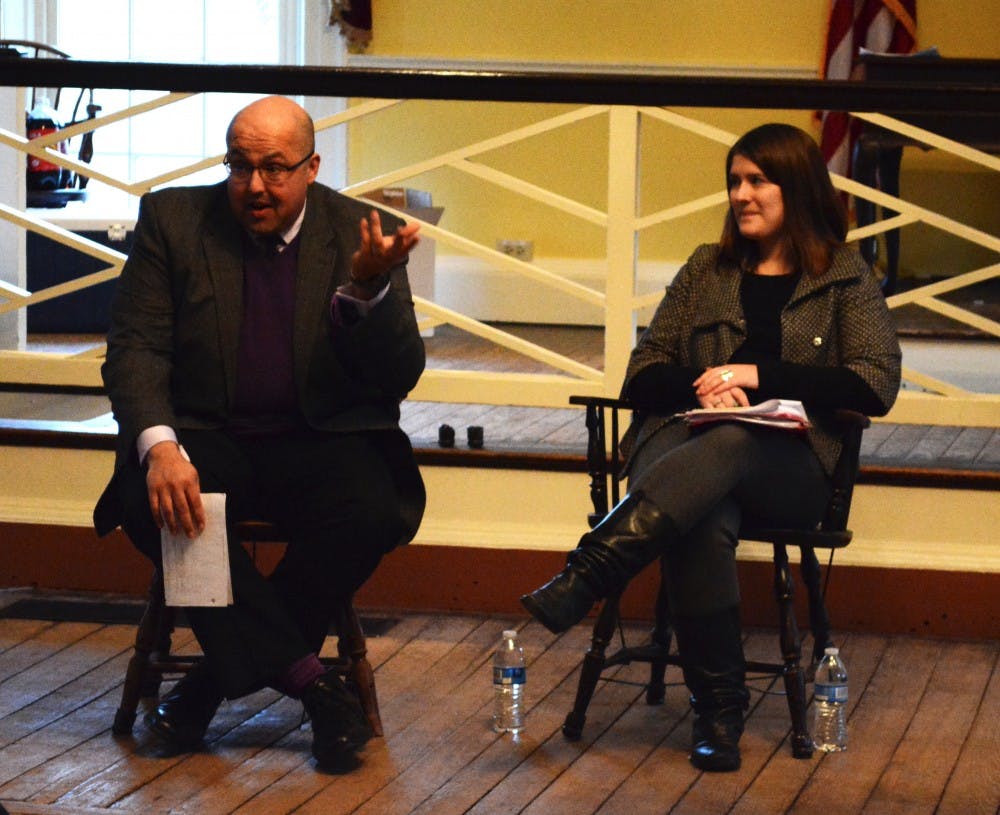The International Relations Organization held a panel discussion Wednesday night to discuss Edward Snowden and the National Security Agency surveillance leaks.
“I went to an event on the NSA leak and Snowden and this ongoing saga of mass surveillance revelations, so I was looking for speakers that would be relevant to that topic,” said IRO Vice President Alexander Webb, a fourth-year College student. “Over the course the past year, it has been an important, ongoing story but we haven’t seen many events on it or much discourse.”
The panelists were Delphine Halgand, U.S. director at Reporters Without Borders, and Siva Vaidhyanathan, the University’s media studies department chair.
Reporters Without Borders is non-government organization which advocates for freedom of press, Halgand said.
“We report and investigate on press freedom violations across the world in 180 countries, and we use that information to raise awareness on press freedom,” she said.
The United States is ranked 46th out 180 countries on the 2014 World Press Freedom Index, which aims to quantify the number of journalistic violations in a given country — falling 13 positions from last year. Halgand said this decrease can be attributed to the recent crackdown on federal whistleblowers by U.S. President Barack Obama’s administration.
“The fact that the Obama administration has prosecuted eight alleged whistleblowers under the Espionage Act … is a clear strategy to restrict all but an officially approved version of the national security policy,” Halgand said.
A prime example of this is Edward Snowden, the eighth whistleblower to be charged under the Obama Administration, Halgand said.
“Edward Snowden never published any of his documents,” Halgand said. “He didn’t go to his own WikiLeaks and publish them. He gave all the evidence he had to journalists and they published it. They didn’t charge The Washington Post for publishing this information — they go after the whistleblower.”
The federal government has increasingly expanded the boundaries of information considered classified, especially after the Patriot Act was passed in the wake of 9/11, Vaidhyanathan said.
“It is such a strange information system and regulatory system,” he said. “And it comes from this process of over-classification, which is not only a deep threat to our Republican form of government … but also a threat to our ability to be safe. Overclassification creates cynicism. It creates a complete lack of trust in the classification system.”
Vaidhyanathan said this overclassification can be in part to blame for the leaks.
“We’re going to get to the point where people no longer trust this crazy system, and people who work for the government will not be able to tell what should be classified and what should not, and they are going to leak indiscriminately,” he said. “And lo and behold — that’s what happens.”
However, the release of information on WikiLeaks was undiscriminating, in the form “data dumps” releasing masses of classified information, Vaidhyanathan said.
“The principle is a good one,” he said. “Assange and his confederates decided long ago there should be a place for whistleblowers to be able to release documents, especially in oppressive contexts where there are no trusted journalists.”
Snowden used a wholly different method, coordinating his leaks with trusted reporters, Vaidhyanathan said.
“He wants to make sure that these very specifically-selected documents about very specific policies get a full hearing in the public sphere,” he said. “He’s not interested in doing the indiscriminate thing like Manning and Assange managed.”
Vaidhyanathan said Snowden’s leaks revealed some disturbing truths about the country.
“It shows [the NSA has] been duplicitous with its citizens, and its been so over two administrations,” he said. “When it comes to the complete lack of trust in American citizens, that remains … As of today, the two things the U.S. intelligence cannot track: large commercial airplanes and … Russian troops … But you and me; they know all about you and me.”





